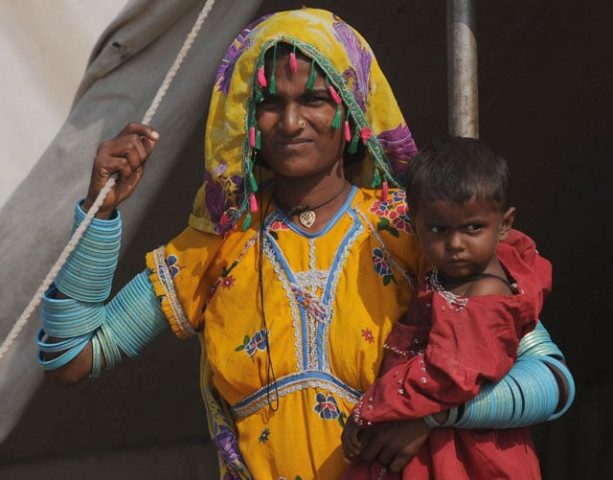Analysis: Opening a space for women’s legislation
The Prevention of Anti-Women Practices Bill 2011 could come up on the review agenda soon.

Analysis: Opening a space for women’s legislation
The recent bill on anti-women practices and the amendment on Acid Crimes in the Pakistan Penal Code, passed by the National Assembly, are seen as significant leaps forward.
The Senate Secretariat confirmed that the Acid Control and Acid Crime Prevention Amendment to the PPC, 2011 will be presented in this session. There is also the expectation that the Prevention of Anti-Women Practices (Criminal Law Amendment) Bill 2011 will come on the agenda.
The anti-sexual harassment legislation, passed from both the houses and promulgated in March, 2010, seems to have opened the path for positive parliamentary action on women’s issues after a very long gap. That package was the first comprehensive legislation for women to be passed since the family law ordinance of the 1960s.
The spirit with which civil society teamed up with the government, and the applause parliamentarians received last year following its passage, created the space to introduce other pieces of legislation critical to women’s rights.
The level of trust between women’s organisations and parliament has improved and, today, there is a kind of quiet coordination among political parties on such issues.
The credit goes to our women parliamentarians who rose above party lines to coordinate on such issues and to the new kind of lobbying, based on cooperation and respect, adopted by some civil society leaders, that has fostered this positive new trend.
Laws against sexual harassment, passed last year, also introduced a new precedent in the structure of women’s legislation. The sexual harassment legislative package consisted of an amendment in PPC that criminalised the act and an associated comprehensive law that dealt with the complexity of the crime from all angles so that, both, social and legal sides would be adequately covered.
The Acid and Burn Crime Bills have followed a similar pattern. MNA Marvi Memon presented a PPC amendment in the National Assembly to criminalise acid-throwing and a more comprehensive bill based on the research of Acid Survivor Foundation will be moved by the government to deal with issues relating to the medical aspects of burn victims, family support, compensation and rehabilitation issues.
The Prevention of Anti-Women Practices (Criminal Law Amendment) Bill 2011 has also been presented as a PPC amendment and a more comprehensive bill is expected in the future.
The domestic violence bill, a subject that has long been too uncomfortable for many of our leaders to address, but was defeated in Senate last year after a process lasting nearly seven years, has been placed on the agenda once again. The National Commission on the Status of Women has worked on a PPC amendment to criminalise the act of domestic violence. This is expected to be presented soon as a government bill, taken forward by the adviser on human rights, Mr Khokhar.
A comprehensive bill has been drafted to address a wide array of issues such as the procedure for obtaining a restraining order, determining the residence of the victim, support and custody issues, among others. This will also be presented to Parliament as a government bill.
Another new trend that needs to be acknowledged is that more space has been created for private member bills to move forward.
The Prevention of Anti-Women Practices amendment, which was prepared by MNA Donya Aziz, and the Acid Crime amendment, prepared by Marvi Memon, are private member bills which received full support from the government.
The prime minister congratulated those who moved the Acid bill, as well as the women of Pakistan, immediately after the assembly passed it unanimously.
Pakistan has been ranked as the third most dangerous country in the world for women.
If so, we cannot afford to kill such bills on petty party politics.
Senate needs to view this legislation as neither private member bills nor tied to one party or another. These are bills for the women of Pakistan.
(Read: Three cheers for Donya Aziz)
Published in The Express Tribune, December 12th, 2011.


















COMMENTS
Comments are moderated and generally will be posted if they are on-topic and not abusive.
For more information, please see our Comments FAQ